The ultimate guide to collagen powder
CONTENTS
What are the different types of collagen?
Do we need to take a collagen supplement?
What is collagen powder and where does it come from?
What do collagen powders contain?
How do collagen supplements work?
What are the different types of collagen?
What is the best collagen protein powder for skin?
How to take collagen powder effectively?
How to find the best quality collagen powder?
Is collagen powder the same as gelatin?
How many calories are there in collagen powder?
Which one is best, collagen capsules or powder?
Is there anyone who should avoid taking collagen powder?
How much collagen powder should I take?
Can I put collagen powder in a face mask?
Is taking collagen powder safe?
What are the side effects of taking collagen powder?
Can you mix collagen with protein powder?
Collagen's Evolution from Beauty Staple to Popular Food Supplement
As one of the staple ingredients in anti-ageing creams, collagen’s been a beauty industry favourite for some time now. But recently collagen has become increasingly popular as a food supplement. You’ll find it as a liquid, in capsules or as a collagen powder that can be stirred into drinks and used in cooking.
As one of a growing number of nutri-cosmetics, collagen powder (also called hydrolyzed collagen powder or collagen peptide powder) has been written about extensively, mostly from a ‘beauty-from-within’ standpoint. But while it does have some intriguing properties when it comes to our complexions, in reality collagen is about so much more than skin.
It’s the most abundant protein in the human body and our own collagen levels change throughout our lifespan, with studies suggesting that overall collagen begins to decline as early as our 20s. The effect on our health isn’t just skin deep, as declining levels of collagen can mean we lose muscle strength, bone mass and less flexible joints.
The good news is you can replenish declining collagen levels with a high-quality supplement such as Skinful, a type I marine collagen protein powder made from wild-caught fish. But how does a collagen supplement really work and can it help us stay flexible, strong and fresh-looking as we age? Read on to find out.
What is collagen?
Your body contains hundreds of thousands of different proteins, each with its own job to do. Some proteins serve as enzymes, others as hormones or molecular transporters. But the most abundant protein in the human body is the one that’s responsible for our connective tissues, and it’s called collagen.
As strong as steel yet highly flexible, collagen accounts for some 25 to 35 percent of all the different proteins in our bodies. It’s often referred to as ‘the glue that holds us together’ and you won’t just find it in humans, it’s also the most widely-found protein in the whole of the animal kingdom.
Because of its sturdy yet pliable chemical make-up, collagen offers support to everything from our skin, muscles and bones to our fingernails and hair. It’s even found in the cornea of our eyes, our intestines and in organs such as the uterus.
How does collagen work?
If you want to swot up on how to take collagen powder effectively, our guide has all the answers.
Collagen anchors cells to each other to form sturdy, fibrous strands. These strands of collagen twist together, giving structure to skin and forming the flexible fibres used in ligaments. The fibrils of collagen have amazing tensile strength so it can be stretched without breaking.
In the skin, these strands look a little like fat Roman pillars placed closely together to hold up the top layer of the epidermis.
Where is collagen found?
You'll find collagen in your hair, skin, nails, muscle, bones, ligaments, joint cartilage, tendons and eyes. Collagen exists in different forms, depending on its location and function in the body. At least 16 different types of collagen have been identified, but some 80 to 90 percent of all the collagen in the body is either type I, II, or III.
Related Products
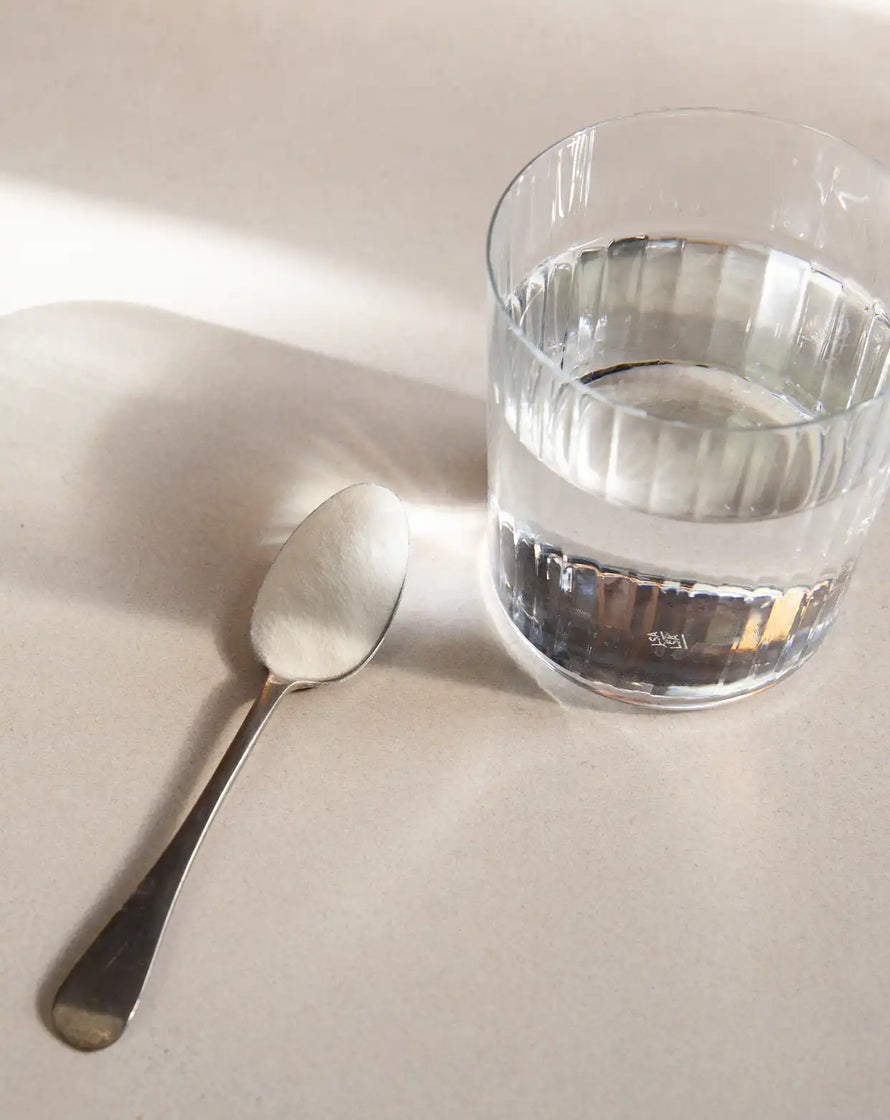
What are the different types of collagen?
Type I Collagen
The vast majority of all the collagen we contain is type I, because it’s found in skin, hair, nails, muscles, joints and organs. Most anti ageing collagen powder supplements for the skin will contain type I, and it’s the type that’s found in large quantities in marine collagen, like Skinful.
Type II Collagen
This type of collagen is present in movable joints and cartilage (the connective tissue that protects your bones). You’ll also find it in spinal disks and eyes. In supplements, type II is predominantly used for joint health.
Type III Collagen
After type I, this is the second most abundant collagen in human tissue because it’s found in places such as your intestines, muscles, blood vessels and the uterus. As a supplement, type III collagen is most commonly used for gut health.
What is collagen made of?
Each type of collagen is made up of amino acids, nitrogen-containing molecules that form the building blocks of all proteins. In collagen, the main amino acids are glycine, proline and hydroxyproline (a special amino acid made from proline and lysine) which account for up to 57% of its chemical make-up.
These amino acids are secreted by specialised cells known as fibroblasts and as they’re manufactured, they’re tightly wound together to create a strong, yet flexible, triple helix fibre.
Why do our levels of collagen decline?
Your body naturally produces and breaks down collagen every day. But over time, more old collagen is broken than can be replaced and the net result is gradually declining levels of collagen.
This natural decline in collagen is responsible for many of the health outcomes we associate with ageing. Like a house with a crumbling frame and weakened supporting structures, skin becomes wrinkled and sunken, there’s less mobility in the joints, muscles weaken and bones lose their density.
Collagen production begins to decline at a rate of about 1 percent a year in our mid-20s and goes rapidly downhill in our 40s and 50s, with the majority of women experiencing a 30 percent drop in the first few years post-menopause.
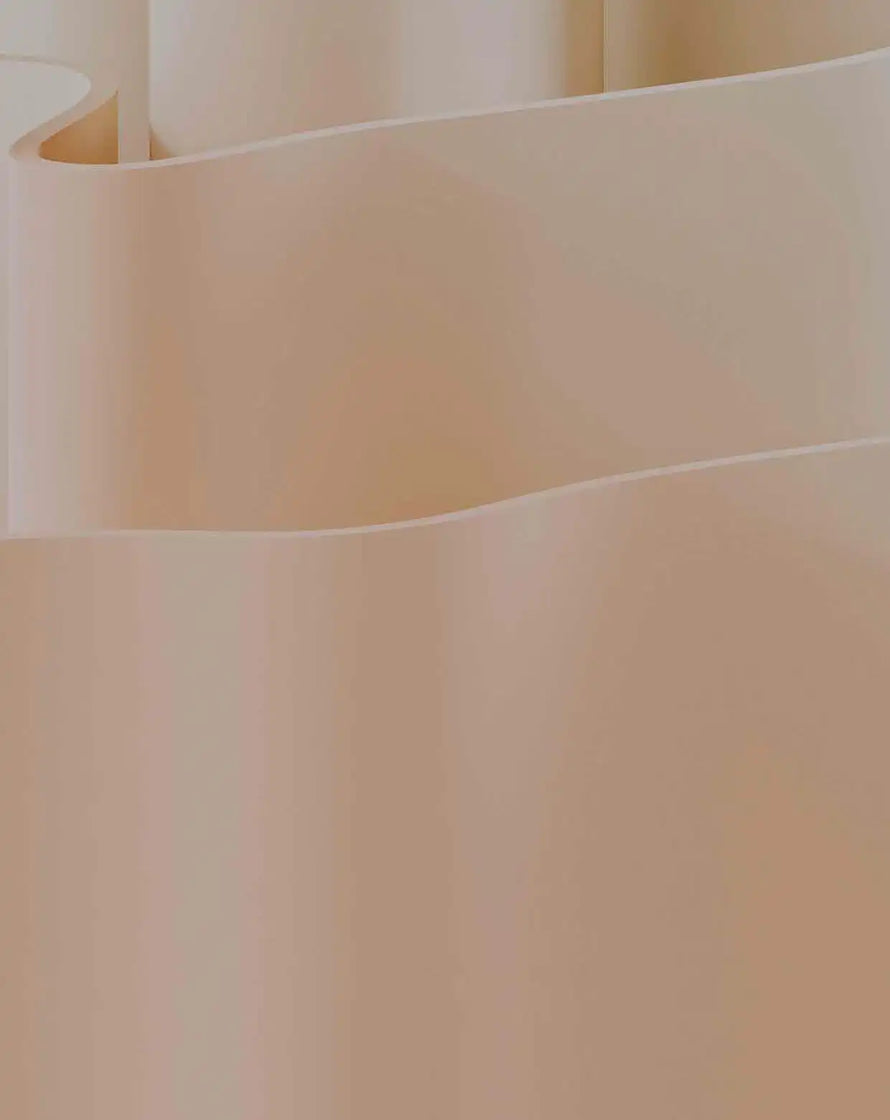

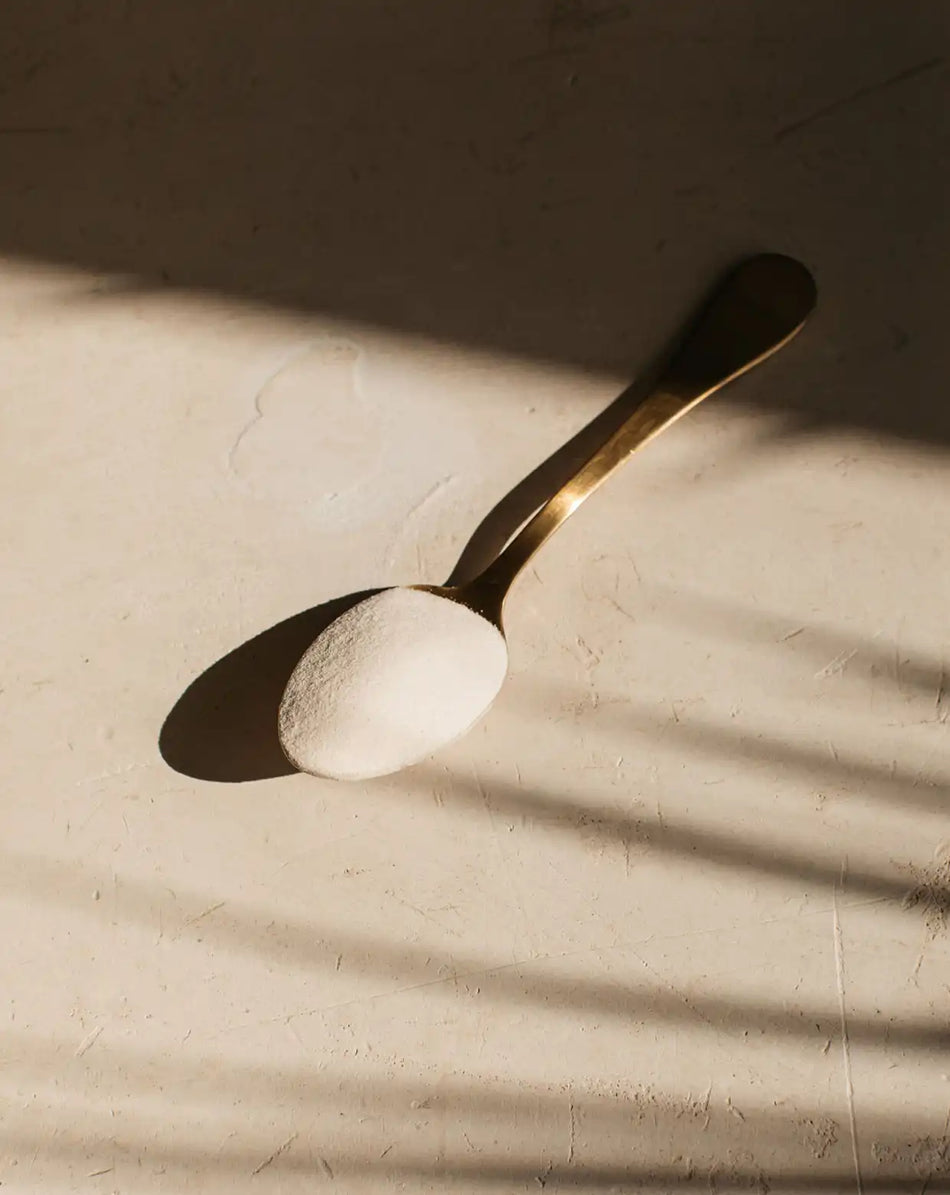
Collagen and skin
The appearance of our skin is important to all of us and not just for vanity reasons. The skin is also the external manifestation of our inner health, so keeping it in good condition is vitally important.
Type I collagen makes up 75 to 80 percent of our skin and it’s found in the dermis. It plays a huge role in the health of our bodies’ largest organ but to explain its importance, we need to take a closer look at the skin’s structure.
The skin is made up of three layers.
The epidermis is the skin you show to the world and it also provides a waterproof, protective barrier. The cells here were formed deep in the dermis around four weeks ago. The dermis is the next layer, lying just beneath the epidermis. The dermis has a blood supply and contains much of the skin’s collagen and elastin fibres, which give it structure and firmness, along with the fibroblasts - specialised cells that make new collagen.The hypodermis is the bottom layer and is made of connective tissue and fat.
As we age the collagen in the dermis breaks down and the fibroblasts don’t make enough to keep up. At this point, skin begins to lose its firmness, fine lines and wrinkles begin to show and there’s a loss of elasticity, meaning skin doesn’t plump up so well after pinching.
But besides age, there are other factors that contribute to declining levels of collagen in the skin. UV rays from the sun, cigarette smoke, pollution, poor diet and even stress can all speed up the breakdown in the skin’s structure.
When we’re younger the damage is repaired by the fibroblasts producing more collagen, but as we get older our fibroblasts become more sluggish. We can’t produce enough collagen to make up for the rate we’re losing it and as the collagen vanishes, so does our skin’s youthful appearance.
So can we just add more collagen to the skin in the form of topical moisturisers?
Unfortunately it doesn’t work that way. While creams and serums can hydrate the dead skin cells on the epidermis and make it superficially look a bit more healthy, the collagen molecules are too big to penetrate the dermis and just sit on the top level of the skin.
Do we need to take a collagen supplement?
While collagen is an important building block for whole-body health, it’s one that’s slipped entirely out of our diets. Our Western love for muscle meat that’s skinless and boneless has meant our diets are almost completely devoid of important amino acids.
That’s not the case in Asian cultures such as China, where nutrient-rich organ meat and connective tissue are routinely eaten. Head to Beijing and you’ll find street markets brimming with pig's trotters, chicken feet and whole duck’s heads, and bone marrow is often served as a side dish.
Of course ideally you’d get all the amino acids you need to replenish your collagen levels from your diet. But unless you want to sit down to a bowl of bone broth every day, there’s every chance you’re missing out on vital nutrients that can keep your bones, joints and skin healthy. That’s where collagen protein powder supplements such as Skinful collagen can step in to fill the gap.
What is collagen powder and where does it come from?
Collagen peptides, hydrolyzed collagen and collagen protein powder are all different names for the same thing. It’s all animal or fish collagen that’s been treated to break down the amino acids into smaller molecules that your body can absorb.
Collagen protein powders are made from the hide and connective tissues of large mammals like cows or in the case of marine collagen powder, from the skin and scales of fish. Because the collagen molecule is too big and sturdy to be digested and absorbed by the bloodstream, it has to be ‘hydrolyzed’ using enzymes and high-pressure steam.
This process splits the super collagen molecule into tiny snippets of collagen fibre, now commonly referred to as collagen peptides. These are much more bioavailable, meaning your body can actually absorb the key amino acids they contain.
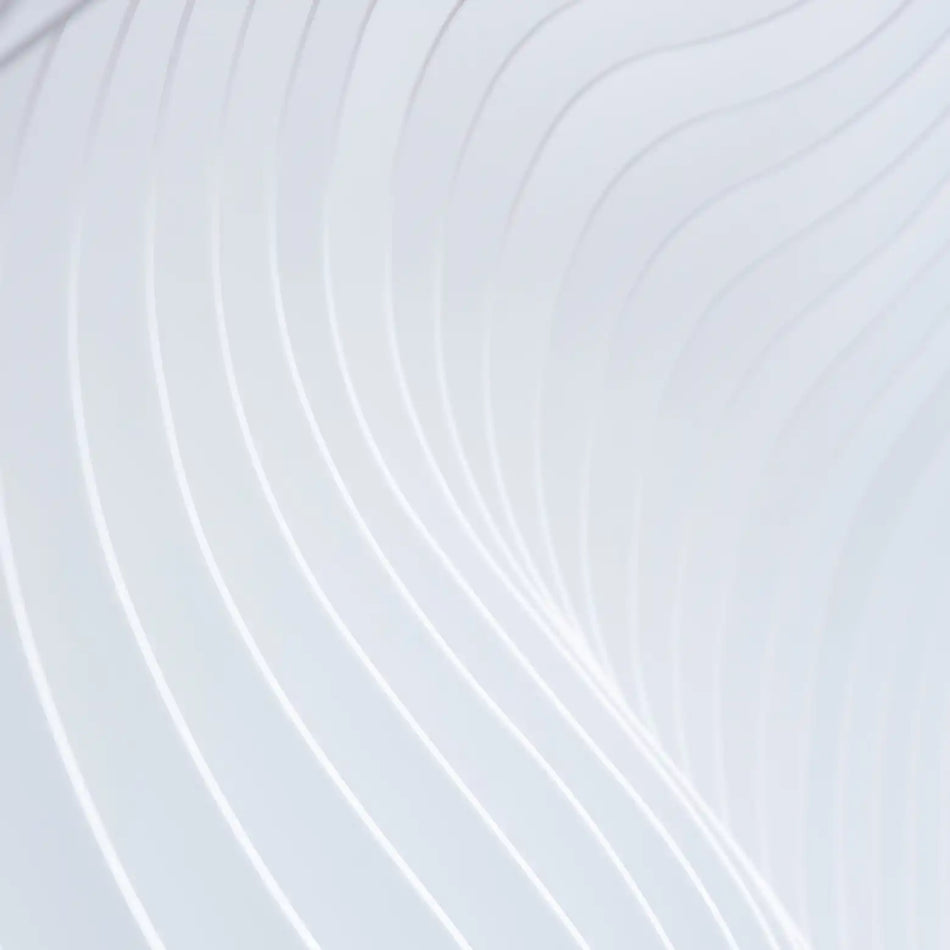
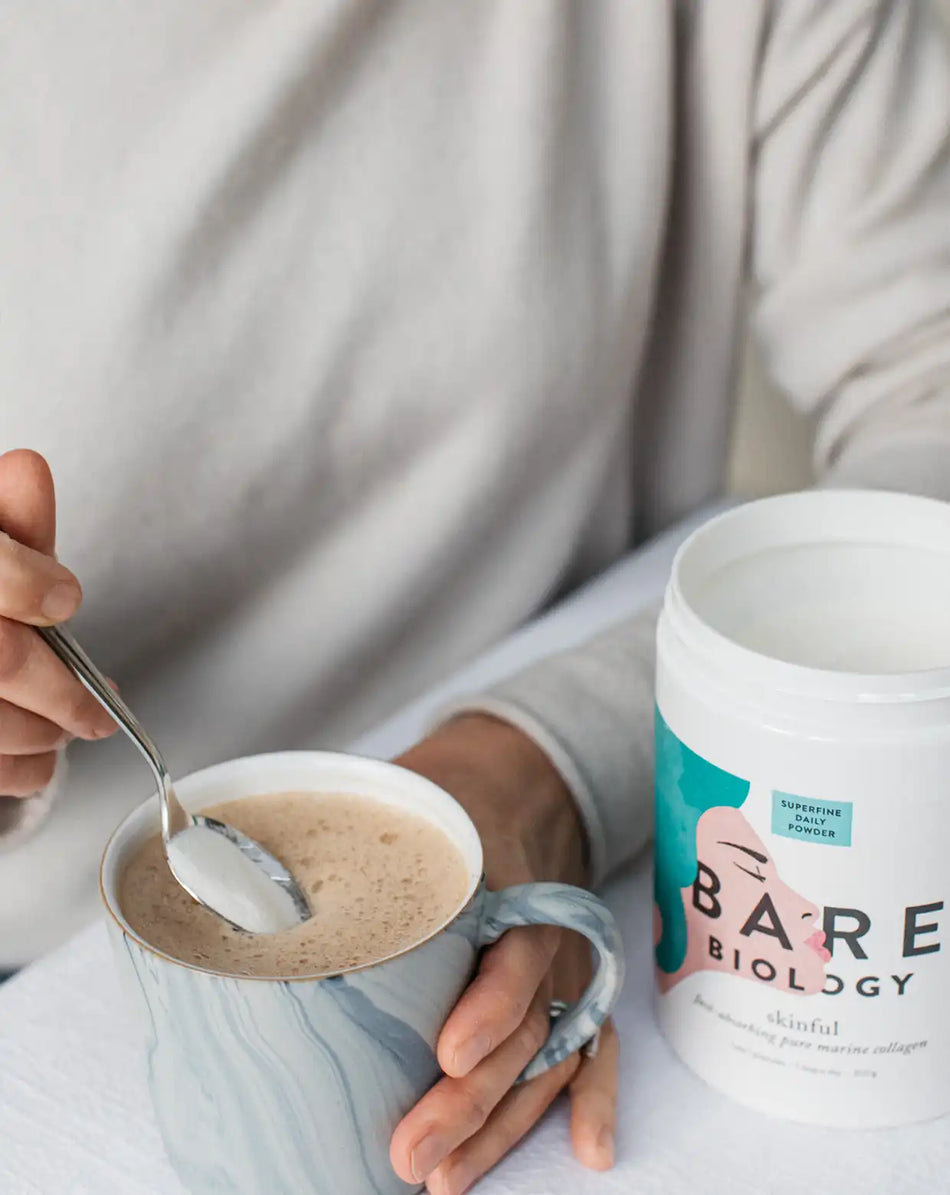
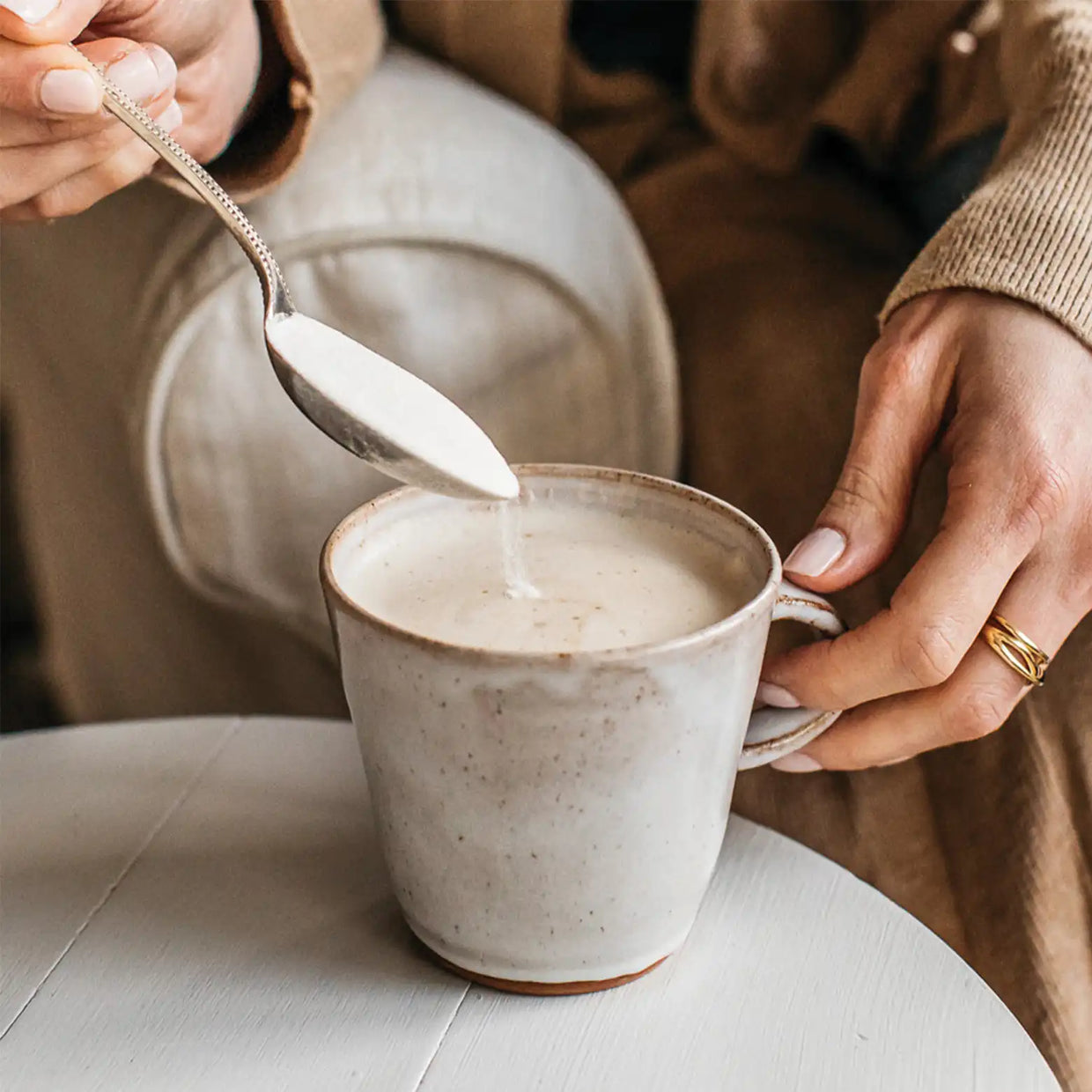
What do collagen powders contain?
Collagen peptides are a white, odourless powder that are neutral in taste. They’re normally derived from type I collagen (the same type that’s found in all human skin and bone) and are up to 97 percent protein.
But the real magic lies in the levels of amino acids they contain. Collagen peptides normally contain around 18 different amino acids, including eight of the nine essential amino acids. The important amino acids glycine, proline and hydroxyproline are the most prevalent in collagen peptides, making up 50 per cent of its total amino acid content - the same amount that’s in human skin.
How do collagen supplements work?
Your body makes its own collagen proteins from the amino acids proline, glycine and hydroxyproline. All three (and hydroxyproline in particular) are hard to come by from diet, unless you regularly eat organ meats or foods such as bone broth.
Collagen supplements are brimming with these amino acids. When you eat them they are absorbed by the small intestine and circulated into your bloodstream. In fact, collagen peptides show up in your bloodstream just two hours after you take them.
What happens next is the subject of two different schools of thought. The conventional view is that the body uses the amino acids to make new collagen directly. But more recently, scientists have come to believe that the presence of these amino acid fragments in the bloodstream tricks the body into thinking there’s been a collagen breakdown. Believing that repair is urgently needed, it stimulates your own fibroblasts to produce more collagen, elastin and hyaluronic acid.
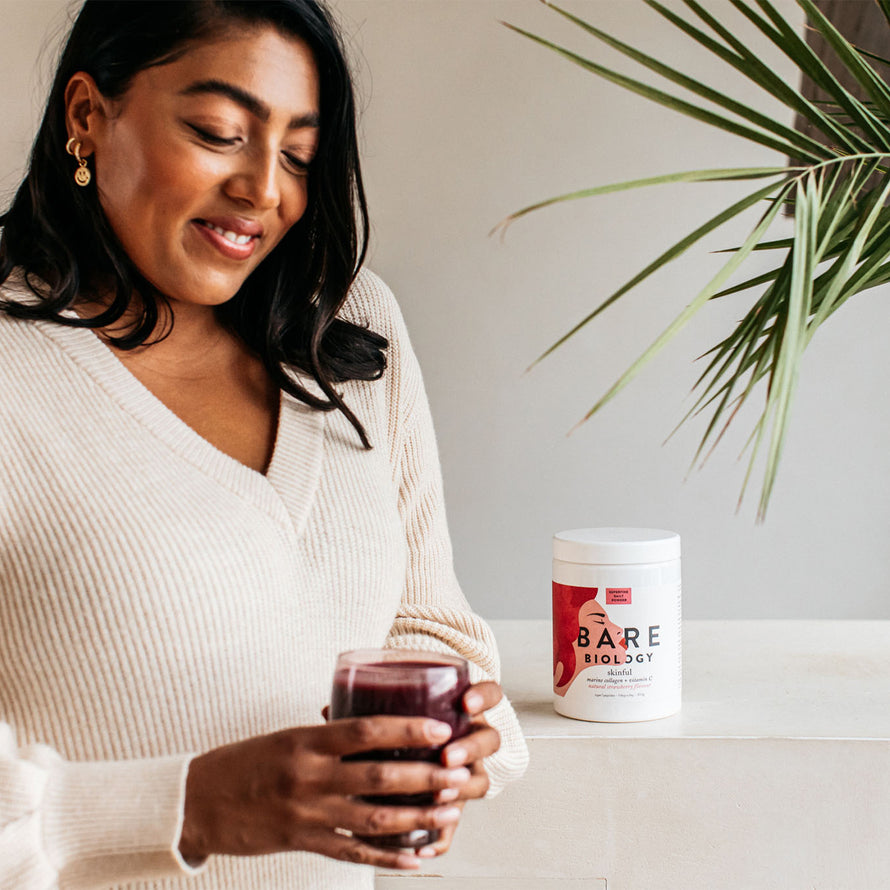
What are the different kinds of collagen powder you can buy?
Bovine collagen
Made from the hide, bones and muscles of cows, bovine collagen powder contains type I and type 3 collagen, both of which are abundant in the human body. A rich source of proline and glycine, bovine collagen powder is normally promoted for bone and gut health, along with strong joints. But because it’s derived from cattle, it could be a problem for those who don’t eat certain types of meat for religious or ethical reasons.
Marine collagen
Made from fish skin, scales and sometimes bones, marine-sourced type I collagen peptides are widely considered to be superior to the bovine variety when it comes to skin health. This is due to their smaller sized molecules, because having a lower molecular weight allows it to be absorbed more efficiently. It’s also suitable for those who don’t eat meat.
What is the best collagen protein powder for skin?
Marine collagen powder is best because it has a nearly identical chemical make-up to skin. Human collagen is made almost entirely of glycine, proline, and hydroxyproline, in roughly the same ratio you find in marine collagen supplements.
The peptide molecules in marine collagen are also much smaller in size than bovine collagen, making it more bioavailable.
And while marine collagen is high in glycine and proline, it’s especially rich in the amino acid hydroxyproline, which is an essential component of skin.
That’s why Bare Biology’s Skinful collagen powder is sourced from wild-caught cod, making it rich in type 1 collagen.
How to take collagen powder effectively?
Skinful marine collagen has a neutral taste, so it’s easy to add to drinks you already enjoy like tea and coffee. This means that whenever you remember to take it, you can simply stir it into your drink and you won’t even notice it’s there.
Unlike other supplements the collagen won’t be damaged by heat, so you could add it to muffins and cookies as well soups and stews. Collagen peptides can withstand heat up to 300°C, making them one of the few protein powders that’s good for cooking and baking.
As a side note, it’s a good idea to make sure you’re also getting plenty of vitamin C too, either by increasing the amount of fruit and vegetables in your diet or by taking a supplement. That’s because vitamin C is a co-factor in collagen synthesis. In fact scurvy (the plague of sailors on long journeys in the 15th to 18th centuries) was actually a lack of collagen caused by vitamin C deficiency.

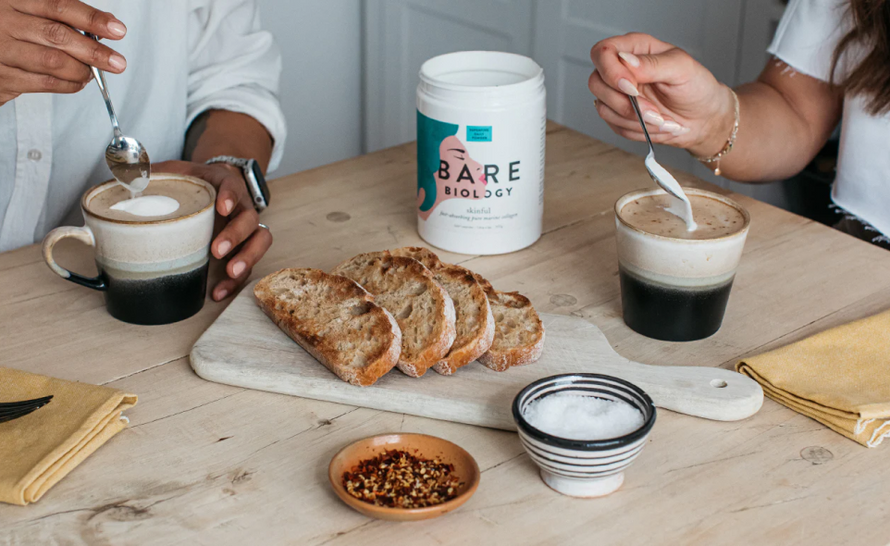
When to take collagen powder?
Is morning or night best? Should you take it with or without food? The short answer is it doesn’t matter when you take collagen powder, as long as you remember to take it everyday. The collagen will be broken down by your stomach acid, whether you take it with food or without, but if you experience any gastrointestinal problems such as indigestion, taking it with food could be helpful.
How to find the best quality collagen powder?
Choose marine collagen
If you want to take collagen for skin health, marine collagen is best as it is especially high in type I collagen, the kind most associated with anti-ageing.
Look for wild-caught sources
Some brands of collagen powder may come from factory farmed fish. If a brand is proud of where their fish come from they’ll shout about it. Bare Biology’s own Skinful marine collagen peptides are sustainably produced from wild-caught, non-GMO cod.
Check the amino acid profile
Make sure your chosen collagen powder actually contains glycine, proline, and hydroxyproline in substantial amounts. And always opt for brands that are transparent about their entire amino acid profile.
Avoid additives
A collagen powder should be as pure as possible, so make sure yours contains no additives in the form of dyes, flavours or fillers.
Test results
Look for brands that publish their test results and, even better, get their products third-party tested for heavy metal residues.
SKINFUL
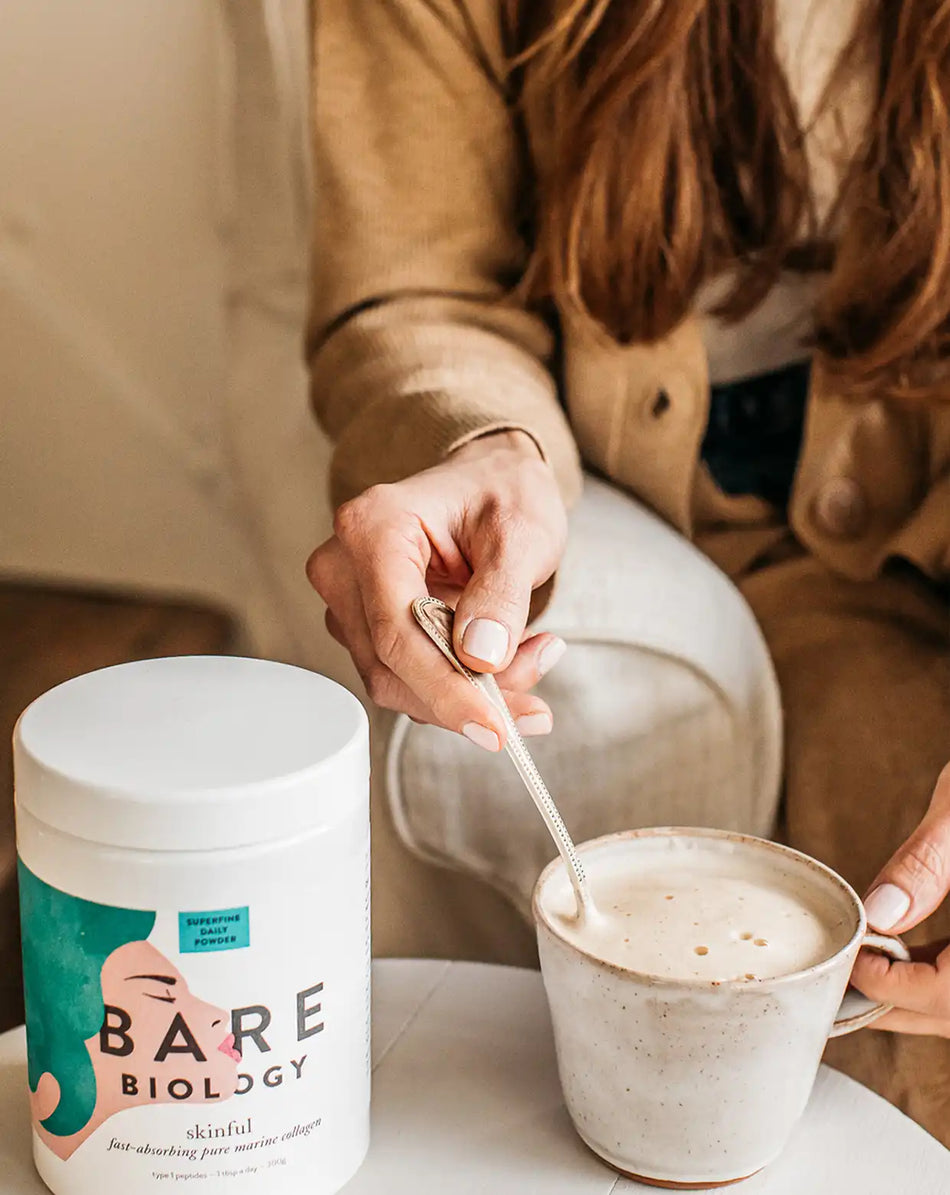
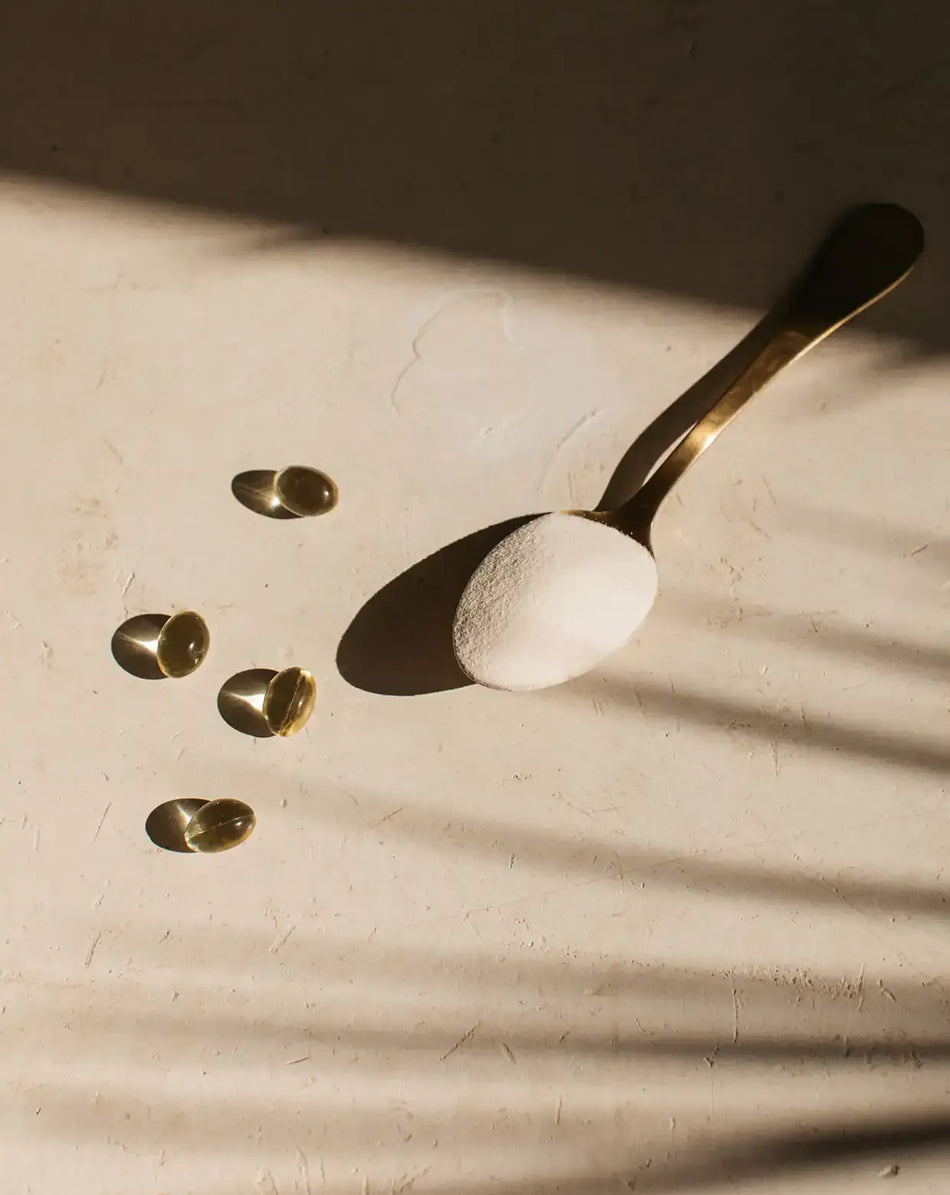
Is collagen powder the same as gelatin?
Gelatin is also a substance derived from the collagen of animals. Its gel-forming properties make it particularly useful in foods that need structure, such as jelly or cheesecakes, or as a casing for vitamin supplements.
Odourless, flavourless and clear, you can buy gelatin from the supermarket in leaf or powdered form. It’s brittle when dry but gummy when moist, which makes it particularly useful in soft sweets.
Collagen peptides have no gelling capabilities because of their low molecular weight, which means they can be dissolved in water of any temperature, hot or cold, without binding together, emulsifying or foaming. This makes them easier to stir into drinks such as tea or to make a collagen latte.
And while gelatin is made up of long chains of amino acids, collagen that has been hydrolyzed is formed from short chains known as peptides. This makes them much more bioavailable, as the shorter chains can be taken up by the bloodstream through the intestinal wall.
How many calories are there in collagen powder?
One serving (5g) of Skinful contains just 19 calories. And because it’s pure protein, it makes the perfect keto collagen powder for those on a low carbohydrate diet. It can also be a good substitute for bone broth for those who are following a paleo diet.
Having a protein-rich diet is also known to prevent cravings by keeping your blood sugar levels stable, as well as keeping you feeling fuller for longer.
SKINFUL
Which one is best, collagen capsules or powder?
Whether you take collagen as a capsule or powder is a matter of personal preference, but Bare Biology Skinful marine collagen comes only as a powder.
We believe powder form is best because it’s so versatile. You can add the powder to almost anything you can think of, with favourites including smoothies, juices, coffee and water. Want to get even more creative? Try adding it to overnight oats or baking with it!
These clever ways of taking collagen are impossible with a capsule. It would mean splitting one open which is messy and wasteful, as you lose a lot of the product in the process.
Collagen capsules are also large in size and you may find you need to take several of them a day to get anywhere near a 5g dose, something that makes capsules more costly, too. So if you struggle to take tablets or are worried about the cost, you’ll find that a powder form is a lot cheaper and much more pleasant.
Is there anyone who should avoid taking collagen powder?
People who are allergic to fish or shellfish should not take a marine collagen powder. And if you have kidney disease or suffer from kidney stones, you should consult your doctor first as collagen will count towards your daily protein total. Pregnant and breastfeeding women should consult a doctor before taking.
How much collagen powder should I take?
We recommend taking one tablespoon or three standard teaspoons (5g) of Skinful every day.
Can you take too much collagen powder?
Anytime you consume more food than your body has the enzymes to process, you may notice some digestive discomfort like bloating. If this happens at a higher dose of collagen peptides, just scale back and slowly build up to your ideal dose.
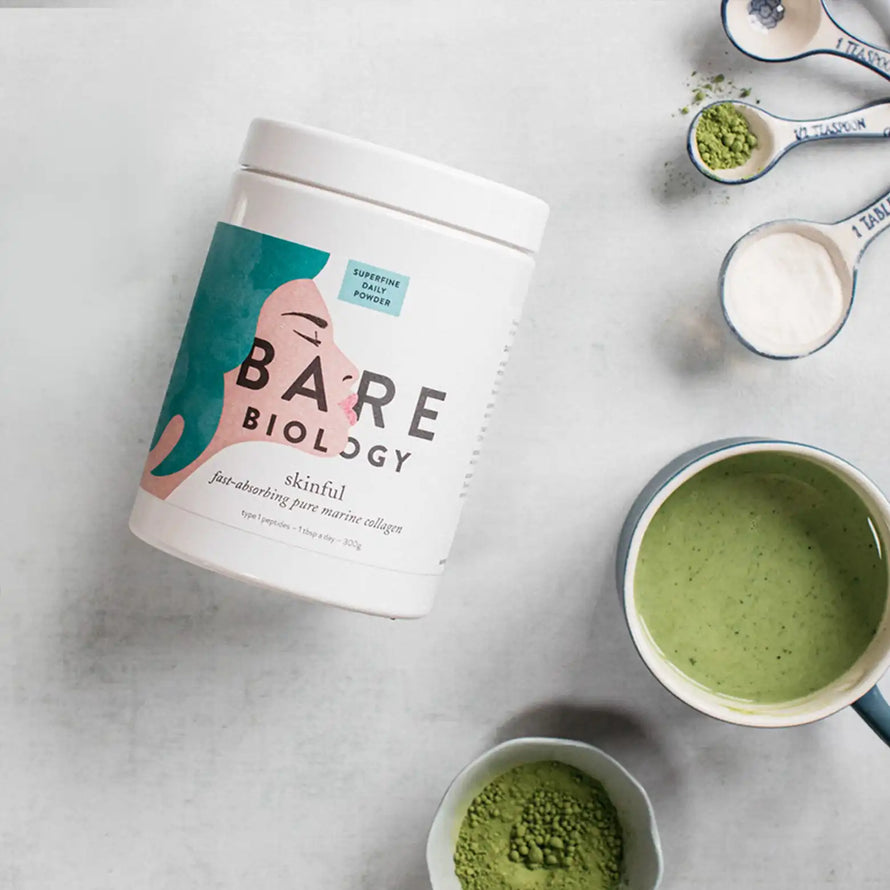
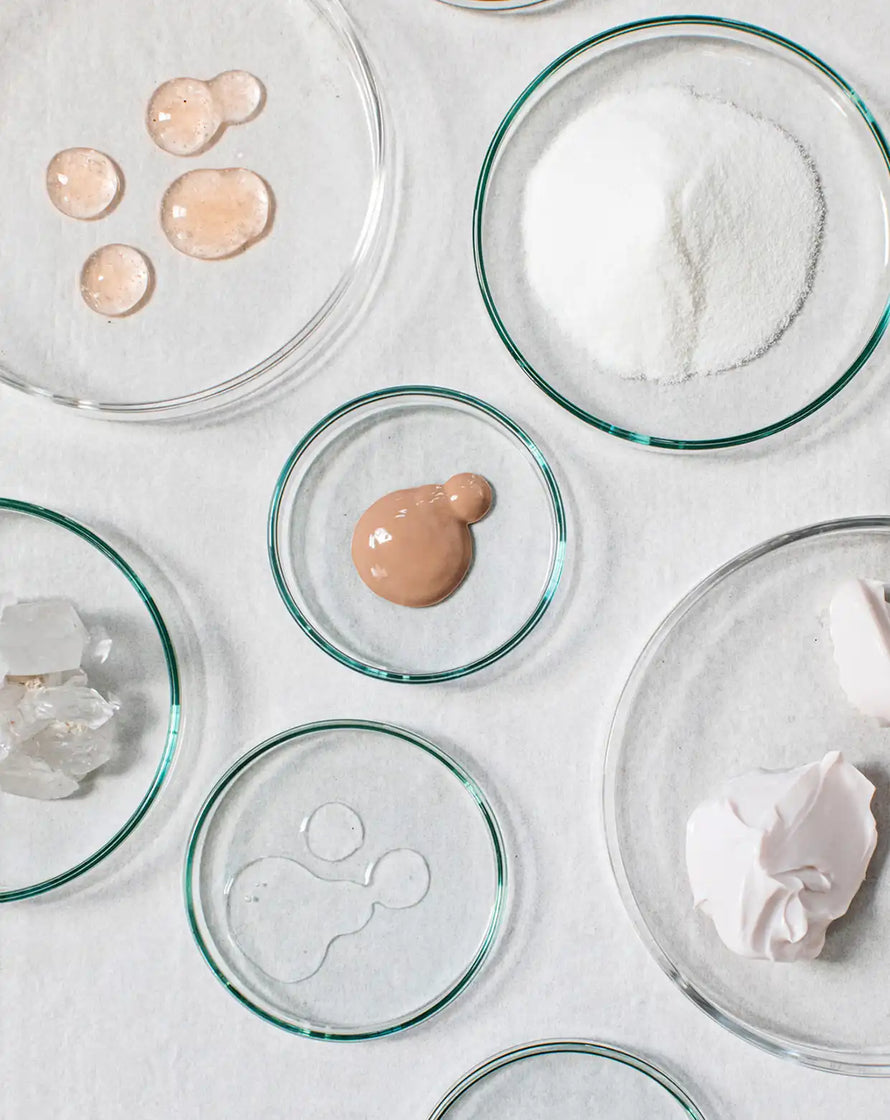
Can I put collagen powder in a face mask?
While it won’t hurt you to put collagen in a mask, it’s far better to eat it than put it on your skin. It’s unlikely that the amino acids it contains will be able to cross the skin barrier to stimulate new collagen growth.
Some products claim to have formulated transdermal collagen that can cross the skin barrier, but these creams are extremely innovative and at present cost hundreds of pounds, which is further evidence that slathering powder on your face is unlikely to have a great benefit.
Is taking collagen powder safe?
Taking collagen protein powder is safe and well-tolerated. But how do you know that your marine collagen doesn’t have high levels of the kinds of toxins that are present in fish, such as PCBs and mercury?
Choosing a reputable brand whose products are tested for purity and who are transparent about their test results is key. Our Skinful collagen peptides are made from hydrolysed wild (never farmed) codfish skin, made and packed in Norway. They’re 100 percent safe and have the highest degree of purity.
We publish our test results for each and every batch, and third party tests which are carried out by an independent laboratory, which you’ll find on the product page as a downloadable PDF.
What are the side effects of taking collagen powder?
Collagen supplements are generally well-tolerated with no known drug interactions. However, some people have been known to experience mild side effects, ranging from a feeling of fullness to mild diarrhea and on rare occasions, skin rashes. Taking collagen supplements with food may help to avoid any gastrointestinal problems.
Some people notice that they feel thirstier when they consume more protein. Listen to your body and drink extra water if you need to.
Can you mix collagen with protein powder?
Mixing collagen powder with protein powder (such as whey or pea) is completely safe, and doing so has its advantages, because you’ll be getting a full range of amino acids and other nutrients.
How long does it take for collagen powder to work?
In all the studies carried out on collagen to date that have shown a benefit, particularly on skin, the subjects took a supplement for between 8 and 12 weeks.
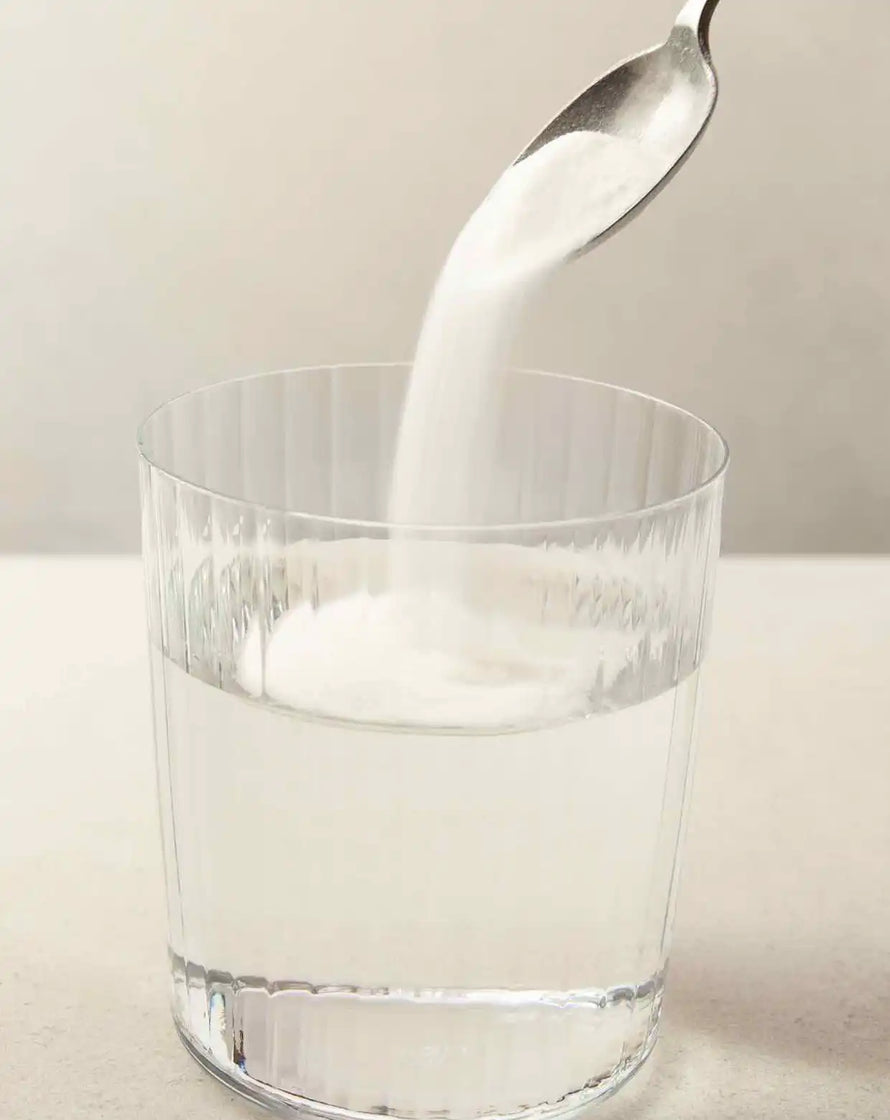
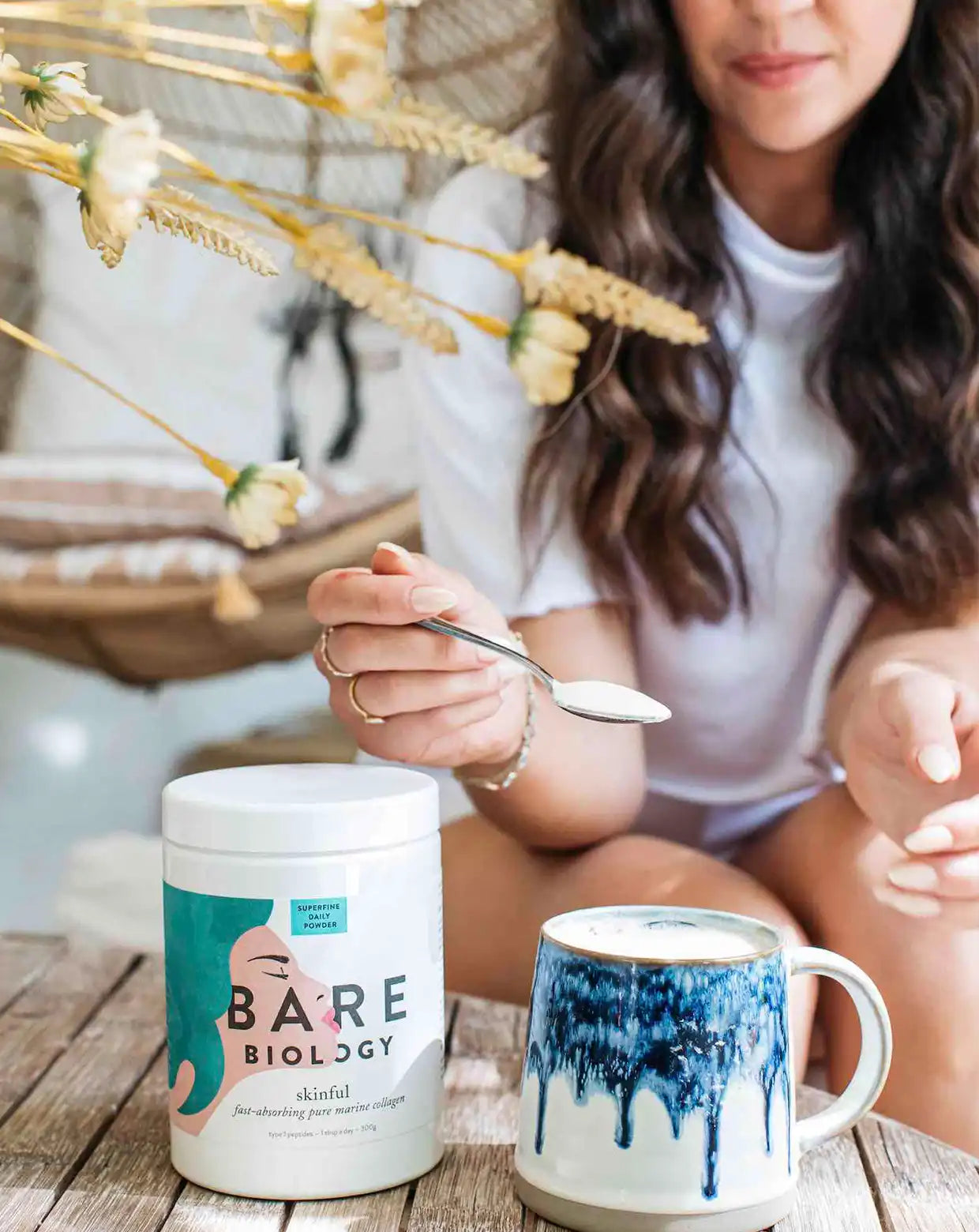
So should I take a collagen supplement?
Collagen plays an essential role in both the structure and appearance of your skin, but that’s not the only reason to include a good quality supplement in your diet.
Collagen is an important building block for all our connective tissues, muscles, joints and ligaments, yet our Western diets are totally devoid of many of the important amino acids we need to make for ourselves, such as glycine, proline and hydroxyproline. While in Asian cultures people still eat collagen regularly, here in the West we favour boneless, skinless (and collagen-free) muscle meat.
If that’s not a good enough reason to include some collagen in your diet, it’s worth remembering that levels of our own collagen decline naturally from our 20s and drop sharply in post menopausal women. This can cause bones to weaken, muscles to atrophy and joints to lose their flexibility, some of the symptoms most commonly associated with ageing.
Collagen supplements are particularly good for us as they’ve been hydrolyzed, or broken down into short snippets (called peptides) of amino acid chains. This allows them to be absorbed more readily by the body to be used where you need them most.
If your priority in taking collagen is anti-ageing, taking a pure marine collagen such as Skinful is best. That’s because it contains type I collagen with a near-identical chemical make-up as the skin itself. And because Skinful is made by Bare Biology, you know you’ll be getting the purest collagen free from any additives or contaminants.





